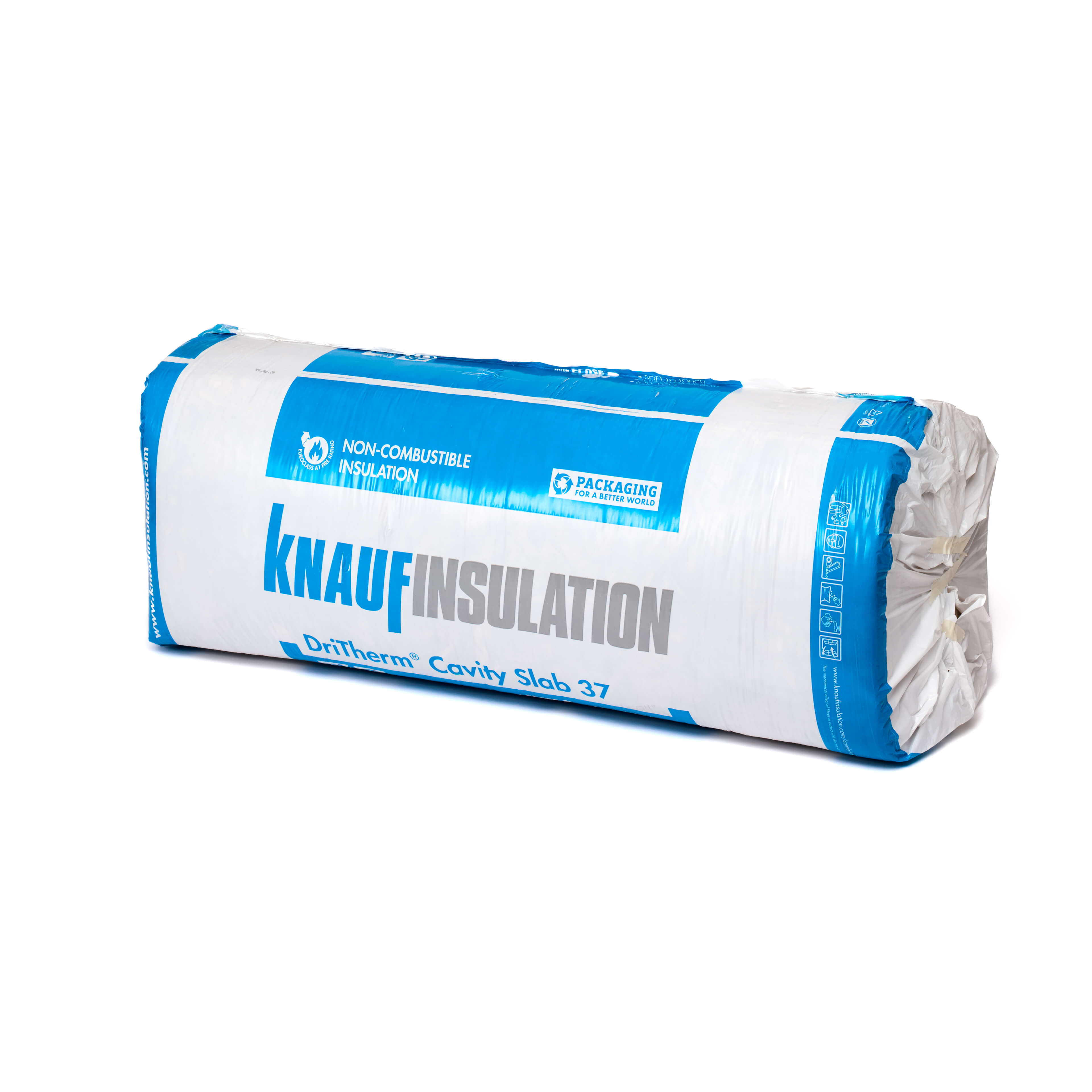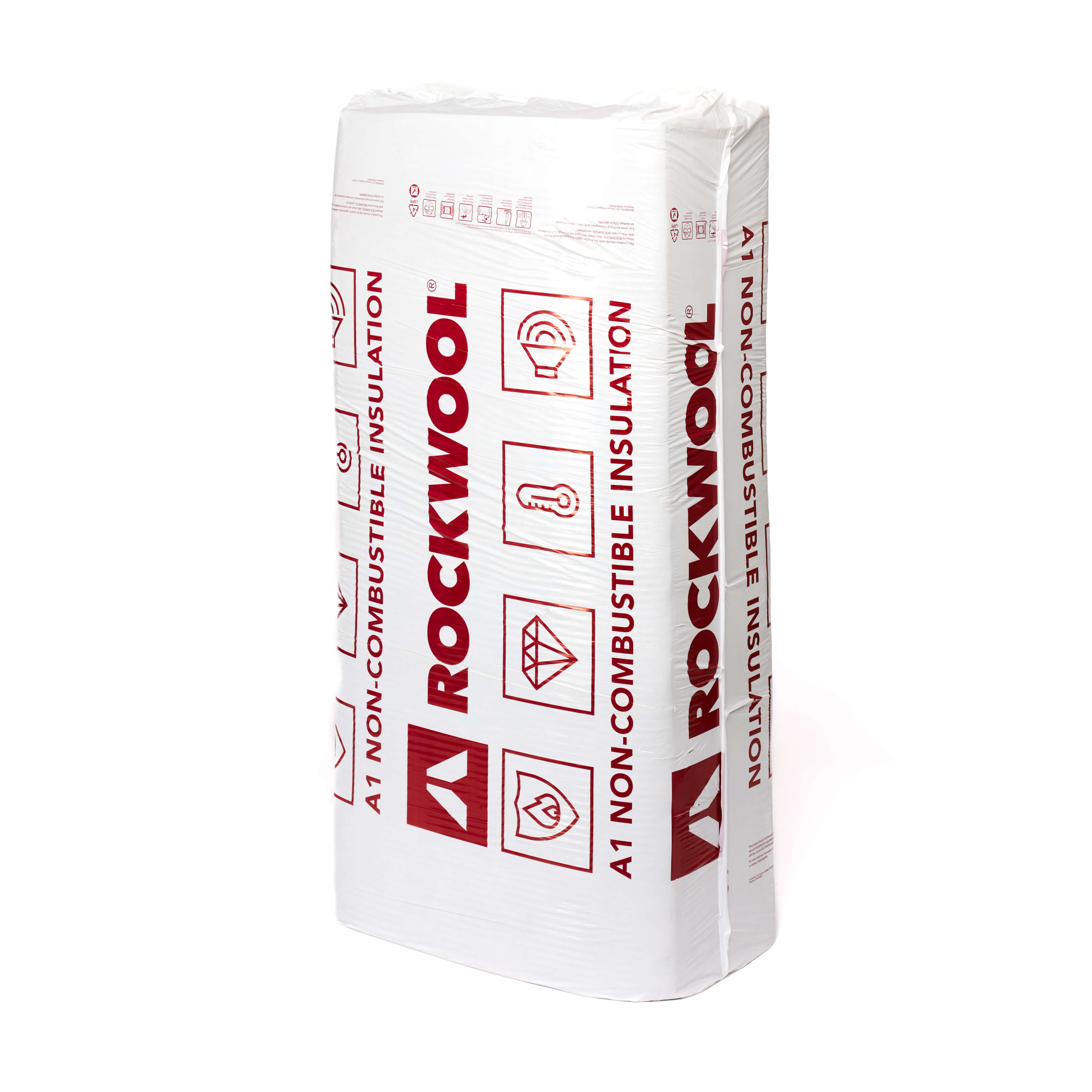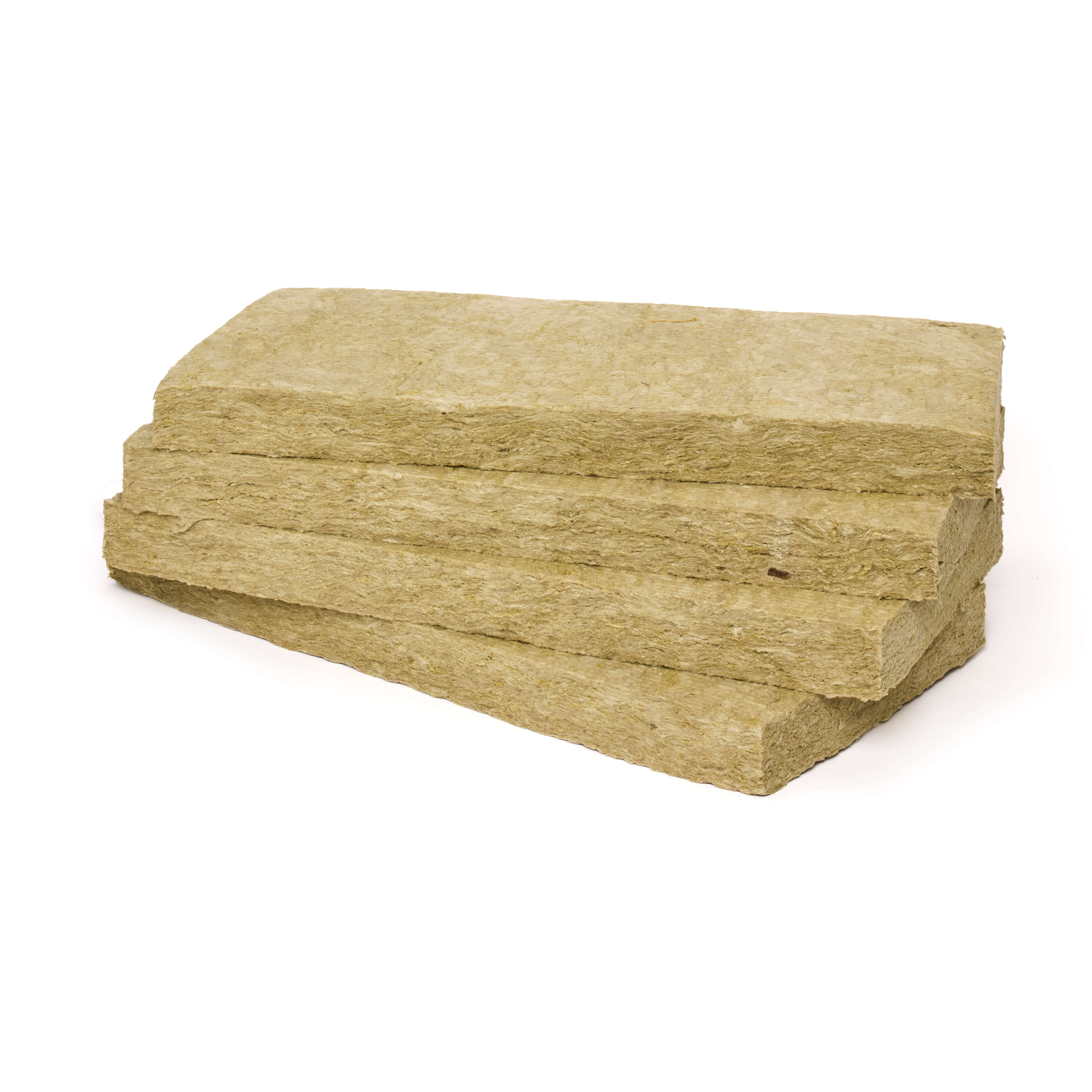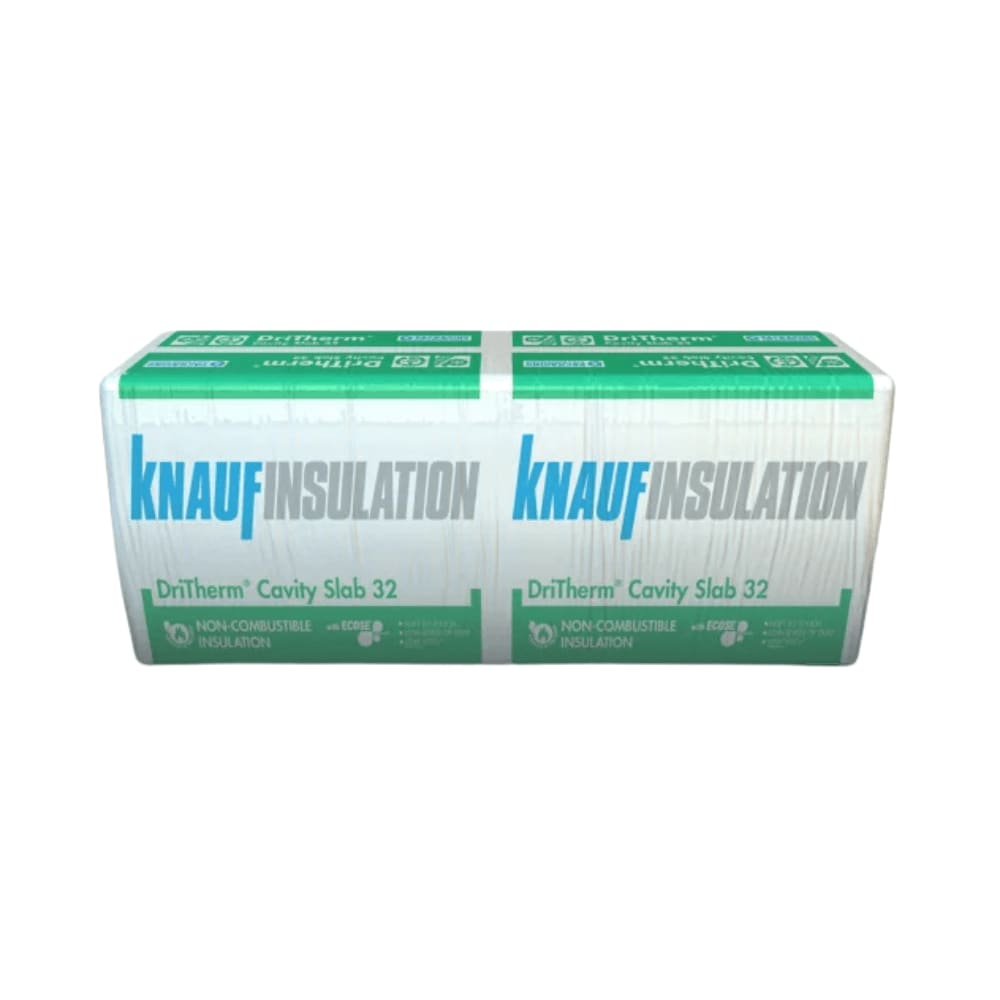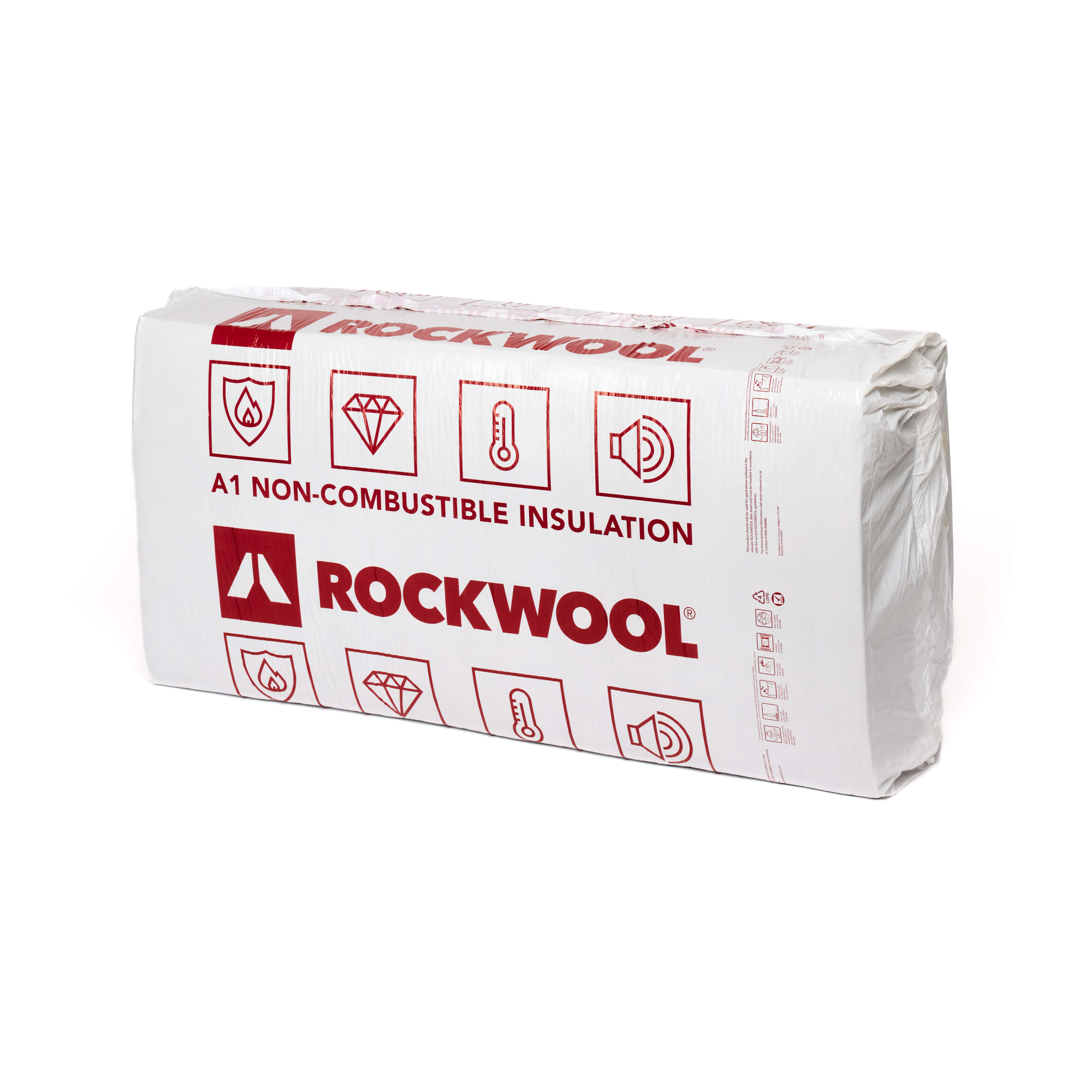Insulation Slabs
(40 Products)Insulation slabs are pre-cut, rectangular panels made to slot neatly into standard framing layouts. Their firm structure allows them to hold shape during handling and install cleanly between studs, joists, or rafters. Unlike flexible roll insulation, slabs can often be fitted by friction alone, helping to minimise gaps and maintain consistent thermal performance throughout the build.
What are Insulation Slabs?
Insulation slabs, sometimes called “batts”, are pre-formed panels of thermal insulation designed to slot neatly between studs, joists, or rafters (or to overlay a surface) and create a continuous, uniform thermal barrier.
These batts occupy a sweet spot in building-envelope design: they are rigid enough to maintain declared performance, yet versatile enough to suit a spectrum of applications, climates and regulatory contexts.
Most insulation slabs are manufactured from two principal forms of mineral wool:
- Stone Wool: Produced by melting and spinning natural basalt rock and recycled slag into fine fibres. It is highly regarded for its density, exceptional fire resistance (due to a high melting point exceeding 1000C), superior acoustic absorption, and effective thermal performance.
- Glass Wool: Glass wool starts in the furnace, not the quarry: waste glass blends with sand, is liquefied, and then flung into filaments that cool into a springy mat. The result is an easy-going insulator that keeps rooms warmer and quieter.
Applications
Insulation slabs are versatile enough to go into walls, roofs, or floors, suiting a wide range of build-ups and performance requirements.
Internal Partition Walls
- These walls often carry insulation to improve both sound separation and temperature stability between rooms.
- Slabs are trimmed as needed and slotted between the vertical studs, timber or metal, before the wall is finished with plasterboard. This added layer can also contribute to fire safety, particularly in larger homes or shared buildings.
External Timber and Steel Frame Walls
- In framed external walls, insulation slabs play a key role in cutting down heat loss and dampening sound.
- They’re set between the studs and usually work alongside components like sheathing boards and vapour control layers.
- Together, these elements help the wall meet required energy standards while keeping the interior quiet and comfortable.
Pitched Roofs (Between Rafters)
- Slabs fitted between roof rafters provide insulation for loft rooms and attic conversions. They’re usually installed in layers, depending on the target thermal performance.
- A breathable membrane is often used on the cold side, with a vapour barrier or plasterboard on the warm side to finish the detail.
Floors (Between Joists or in Floating Floor Systems)
- Mineral wool slabs in floors help with both heat retention and sound control.
- Between joists, the insulation is held in place with battens or netting. In floating floors, denser slabs can be laid directly beneath the top layer, supporting loads while adding acoustic and thermal benefits.
Suspended Ceilings
- Slabs can be dropped into the ceiling grid to absorb sound from above and reduce noise levels in the room below.
- Ideal for places like classrooms, open-plan offices, libraries, or any room where speech needs to carry without a distracting hum.
Masonry Cavity Walls (Partial Fill)
- Some slabs are designed specifically for partial-fill cavity walls. These sit against the inner masonry leaf and leave a small air gap, which helps drain moisture while still cutting down heat loss through the wall.
- The slabs are often treated to repel water, keeping the insulation layer dry and effective over time.
Regulations & Standards
- Energy: Approved Document L (England) sets limiting U-values of 0.16 (W/m²K) for roofs, 0.26 for new walls, and 0.18 for renovated walls and floors.
- Fire: Reaction-to-fire is classified under BS EN 13501-1; mineral-wool slabs routinely achieve A1/A2-s1,d0.
- Acoustics: Sound absorption is tested to EN ISO 354; separating-wall performance is verified to ISO 10140 / BS EN ISO 140-3.
Frequently Asked Insulation Slabs Questions
How Should I Store Insulation Slabs?
- Keep Dry: Always store slabs in a dry, covered environment (warehouse, shed).
- Off the Ground: Use pallets or battens to elevate slabs, preventing ground moisture contact.
- Waterproof Cover: If stored outdoors, use a secure, waterproof tarpaulin, ensuring the entire stack is covered and allowing for some ventilation to prevent condensation.
- Original Packaging: Keep slabs in their original packaging for initial on-site protection.
Do Insulation Slabs Require A Vapour Control Layer (VCL), And How Does This Affect Condensation Risk?
In most applications, especially in external walls and roofs that separate heated indoor spaces from colder outdoor environments, yes, a vapour control layer (VCL) is generally required on the warm side of the insulation.
While mineral wool slabs are vapour permeable (allowing water vapour to pass through), a VCL is crucial to:
- Prevent interstitial condensation: This occurs when warm, moist indoor air passes through the insulation and cools, causing water vapour to condense into liquid water within the wall or roof structure. This can lead to damp, mould, and degradation of materials.
- Improve airtightness: A continuous and well-sealed VCL also acts as an air barrier, preventing unwanted air leakage.
Careful design and installation, ensuring the VCL is continuous and sealed at all junctions and penetrations, are critical to managing condensation risk.
What Do The Numbers Within The Insulation Slab Titles Mean?
Insulation labels often carry a number and that figure tells you the product’s thermal conductivity. A smaller value means the slab slows down heat loss more effectively.
Take DriTherm 37: the “37” points to a conductivity of 0.037 W/mK, so it performs better than a product labelled 40 or 42.
The “Dri” prefix signals a water-repellent additive in the fibres. By shedding moisture instead of soaking it up, the slab stays dry and keeps delivering its stated insulation level in walls prone to damp.





